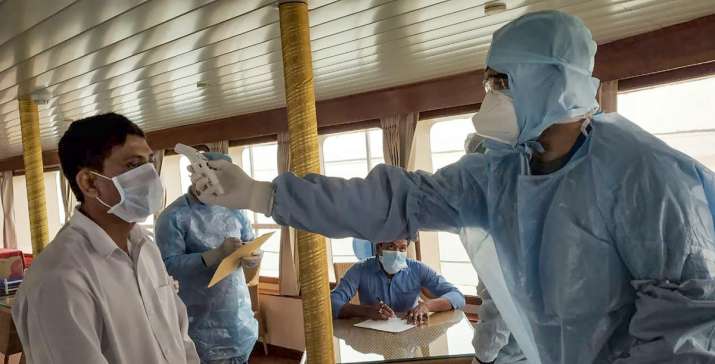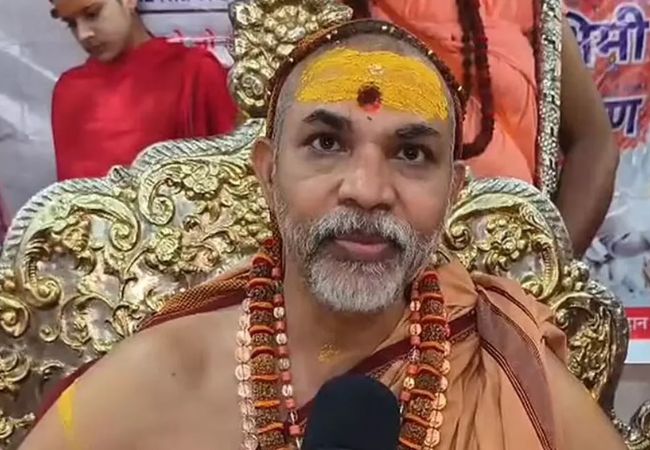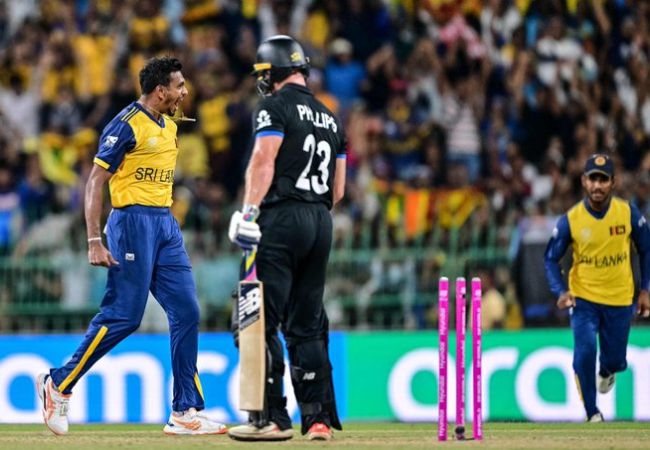New Delhi: Focusing on the "test, track and treat" strategy, India has tested more than 8 lakh samples for COVID-19 for the second consecutive day in a row, taking the cumulative tests to 3,17,42,782 so far, the Union Health Ministry said on Wednesday.
With a strong resolve to rapidly increase the number of tests done per day to touch 10 lakh per day testing capacity, 8,01,518 samples were tested in a span of 24 hours on Tuesday.
The total recoveries from COVID-19 have surged to 20,37,870 in the country, pushing the recovery rate to 73.64 per cent, according to the Health Ministry data updated at 8 am.
"The cumulative testing as on date has reached 3,17,42,782. The Tests Per Million have seen a sharp rise to 23,002," the ministry said.
"It is only by aggressive testing that positive cases can be identified, their contacts tracked and isolated as well as prompt treatment can be ensured through timely medical care.
"The sustained level of high testing has played a key role in India's increasing rate of recovery, widening gap between the recovered and active cases, and also progressively declining fatality rate," the ministry said.
India followed the track of a graded and evolving strategy, steadily strengthening its nationwide network of labs in the public and private sectors. Starting from one lab in January 2020, presently there are 1,486 labs in the country, with 975 labs in the government sector and 511 in the private sector.
With 64,531 people testing positive in a day, India's COVID-19 tally increased to 27,67,273, while the death-toll climbed to 52,889 with 1,092 people succumbing to the disease in a span of 24 hours, the data updated at 8 am showed.
Let the Truth be known. If you read VB and like VB, please be a VB Supporter and Help us deliver the Truth to one and all.
Lucknow (PTI): The Uttar Pradesh Congress on Wednesday staged a statewide protest demanding a fair and transparent inquiry into the FIR lodged against Swami Avimukteshwaranand Saraswati and those who filed the complaint against him.
In a statement issued here, the party said memorandums addressed to Prime Minister Narendra Modi were submitted through district magistrates in all districts of the state.
Uttar Pradesh Congress spokesperson Manish Hindvi told PTI that the memorandums were handed over through the district administration in all 75 districts.
In the memorandum, the party alleged that Saraswati and his disciples were "unnecessarily harassed and humiliated" by police on the occasion of Amavasya and were prevented from taking a ritual bath (at the Magh Mela). It further alleged that some disciples were manhandled and taken to a police station.
The memorandum also claimed that an FIR was later registered against Saraswati, his disciple Swami Mukundanand Brahmachari and several unidentified persons in a sexual harassment case. It termed the case a "conspiracy" aimed at tarnishing the seer's reputation.
Citing Articles 25 and 26 of the Constitution, the memorandum stated that these provisions guarantee religious freedom and the right of religious denominations to manage their own affairs.
It described the position of shankaracharya held by Saraswati as "one of the highest spiritual posts in Sanatan tradition" and alleged that the entire episode appeared to have been "orchestrated in a planned manner".
"We request that the background of the persons who got the FIR registered be investigated in a transparent manner by a retired high court judge and strict action be taken against them," the memorandum said.
It also sought a "fair and transparent probe" into the allegations levelled against Saraswati so that the truth could be established.
Earlier, Uttar Pradesh Congress president Ajay Rai had told reporters in Varanasi after meeting Saraswati that the party stood firmly with him.
The Congress said it would continue to press for an impartial inquiry into the entire episode.
On February 21, an FIR was lodged in Prayagraj against Saraswati and his disciple Mukundanand Brahmachari on charges of sexually abusing two persons, including a minor, over the past year at a gurukul and religious congregations, including the recently concluded Magh Mela.
Days after he was booked, Saraswati had said on Monday that he would not oppose his arrest and asserted that the "fabricated story" would be exposed sooner or later.
At a press conference on Wednesday, Saraswati alleged that criminals rule in Uttar Pradesh, level allegations and influence investigations, as he denied having any contact with the two persons for whose alleged sexual abuse he has been booked.



_vb_77.jpeg)
_vb_00.jpeg)
